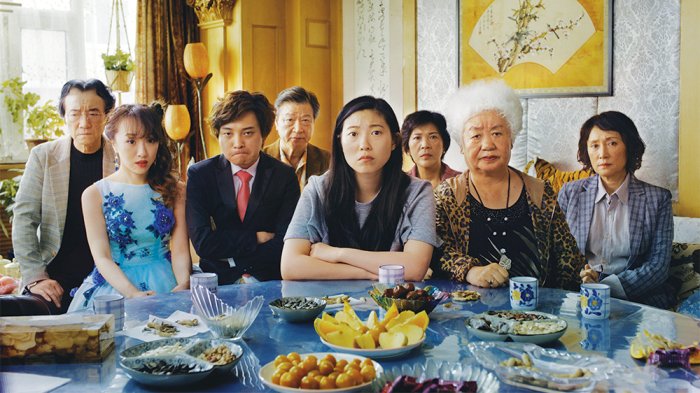
“Based on an actual lie…” is now one of my favorite lead-in lines for a movie ever. There is a plethora of reviews and personal anecdotes out there for this movie already. I am a little late to the game, but I will still do my best to paint you a picture of this movie without completely spoiling it for you.
The premise for this movie is simple: the lies we tell people to protect them from worry and unnecessary pain. Well, the latter part of that sentence is the lie we tell ourselves to feel better about lying to a loved one in the first place. The Chinese title of the film 別告訴他 (Hanyu pinyin: bié gàosù tā; English: Don’t Tell Her) is an actual line spoken over and over throughout the movie from different characters to different characters about different characters. The theme is universal and cuts across the cultural boundaries we humans have created. How far would you go to hide the truth in the name of love? The strength of character and the bond of filial piety are tested in so many ways.

Food is featured prominently in the movie. While New York City and Beijing are both metropolises known for their foods, beyond that, food is another love language. In many Chinese languages, greeting another person was not related to a superficial, edging on rhetorical “hello, how are you?” equivalent, but a literal and earnest, “have you eaten?” because you were sincerely interested in how the other person was doing. The greeting is less frequently used these days, but it is no less sincere. There are many theories as to the origin of the greeting, but my favorite is that food, especially meat, was scarce in the times already lost to history. The majority of the populus almost never had enough to eat, so everyone tried to help each other out whenever possible. Asking if someone had a meal showed that you truly cared about their wellbeing. The greeting and any subsequent assistance ensured community survival, not just the survival of the individual.
Identity is questioned often and analyzed frequently in small, simple ways with a look or what seems like a throwaway observation. In heavier, more complex methods, so many feelings surface in simple interactions and gestures and turns of phrase that make the struggles familiar and very close to home for me. The expectations that come with living far away from your origins are different with each family. How much are you expected to assimilate into your adopted land? How much are you supposed to hold onto your roots? Do you learn to trust your new home? Was leaving your old home a mistake? One question, one look, one passive aggressive comment, and all of these questions bubble up immediately in the minds of audience members in the span of a moment.

By the end, you may or may not walk away with a new vantage point. Whether or not you acknowledge it is entirely up to you, but the film offers everyone the opportunity. Complicit with so many in the lie, am I actually trying to share the burden of truth to lighten the overall emotional load? Am I just doing what I am told? What motivated us to pick what is right and what is wrong? A sincere thank you to Lulu Wang, Awkwafina, and the entire cast and crew for making a film that makes me feel seen, heard, and uncomfortably familiar all at the same time.

